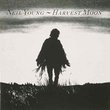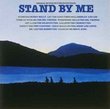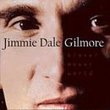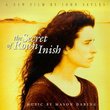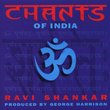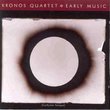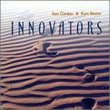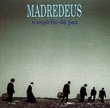| All Artists: Anonymous, John [British Composer] Ireland, Scottish Traditional, English Traditional, American Traditional, British Isles Traditional, Irish Traditional, Andreas Scholl, Orpheus Chamber Orchestra Title: Andreas Scholl: Wayfaring Stranger Members Wishing: 0 Total Copies: 1 Label: Decca Original Release Date: 1/1/2001 Re-Release Date: 11/13/2001 Genres: Folk, Special Interest, Pop, Classical Styles: Vocal Pop, Opera & Classical Vocal, Historical Periods, Modern, 20th, & 21st Century Number of Discs: 1 SwapaCD Credits: 1 UPC: 028946849927 |
Search - Anonymous, John [British Composer] Ireland, Scottish Traditional :: Andreas Scholl: Wayfaring Stranger
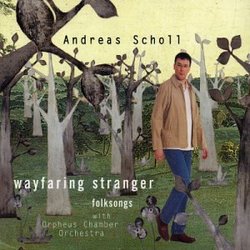 | Anonymous, John [British Composer] Ireland, Scottish Traditional Andreas Scholl: Wayfaring Stranger Genres: Folk, Special Interest, Pop, Classical
The German countertenor Andreas Scholl takes risks on his latest CD, Wayfaring Stranger, and not all of them pay off. It is a recording of 17 English-language folksongs, some of them very well known, such as "Down by the S... more » ![header=[] body=[This CD is available to be requested as disc only.]](/images/attributes/disc.png?v=a4e11020) ![header=[] body=[This CD is available to be requested with the disc and back insert.]](/images/attributes/disc_back.png?v=a4e11020) ![header=[] body=[This CD is available to be requested with the disc and front insert.]](/images/attributes/disc_front.png?v=a4e11020) ![header=[] body=[This CD is available to be requested with the disc, front and back inserts.]](/images/attributes/disc_front_back.png?v=a4e11020) |
Larger Image |
CD DetailsSynopsis
Amazon.com The German countertenor Andreas Scholl takes risks on his latest CD, Wayfaring Stranger, and not all of them pay off. It is a recording of 17 English-language folksongs, some of them very well known, such as "Down by the Salley Gardens" and "My love is like a red, red rose." This is not usually a repertory tackled by classically trained singers, who can sound prissy, but Scholl's clear, plaintive alto, with its rich low notes and gentle top range, is a quite plausible vehicle. "Wild Mountain Thyme" evokes real sadness, while "Barbara Allen" aches with unhappy love. A surprise awaits in the ballad "Henry Martin," as Scholl uses his rough, nondescript baritone to identify the hero. It is rather a jolt. At least, it is good to know his voice has actually broken. In this song, too-feminine endings in the lyric fall clumsily on stressed beats. Scholl does nothing to counter the infelicity; English, of course, is not his mother tongue. In the beautiful title track, which opens the disc, he sings endearingly of a "why-farring straincher." The accompaniments for various combinations of chamber orchestra, lute, dulcimer, and harp tend to be slushy, sentimental, and over-fussy. The bass uncomfortably parallels the tune in "Salley Gardens" and would have won a big red line through it in old-fashioned harmony classes. Still, on the whole, this is a worthwhile disc. Scholl clearly loves the songs he sings with great tenderness, and he deserves credit for his courage even where the experiment fails. --Rick Jones Similarly Requested CDs
|
CD ReviewsScholl chooses style over substance, but does it SO well... Stephen Jackson | Texas, USA | 12/21/2001 (5 out of 5 stars) "First, I have not always been the greatest admirer of Scholl. As a classical singer (a countertenor myself) with a VERY American sound, I had trouble swallowing the purity and glassiness that I sometimes hear in his tone. I was a MAJOR David Daniels and Bejun Mehta fan, and wasn't enamoured of the gentler side of the CT sound. HOWEVER, I have since given Scholl a second listen (and third and fourth) and decided that his artistry and control of the instrument are superb even if I would choose other timbres for my own vocal style. When I listen to Scholl, it is like an alto Flute, whereas Daniels or myself are more like some doublereed instrument. The other reviews for this album insist on bashing the sometimes overly sentimental or "produced" quality of the music. What they ignore is the beauty of the songs, the treatment of the arrangements (which are a bit more lush than tradition might dictate, but the effect is none the less true to the meaning of the songs!) and the naturalness of the "fit" into Scholl's voice. I have zero complaints about this CD. Even his occasional less than perfect English diction is really more of an affect of the CT range than poor knowledge of the dialect. (English is my first language, and I occasionally have enunciation issues with the English song repertory, the vowels are simply murderous in some words!) BUY THE CD... you won't regret it, even if it isn't Vivaldi and Handel on Theoboros and Viols, it IS good music and a damn fine recording." Beauty and sadness in modern arrangements Stephen H. Orel | NYC | 03/30/2004 (5 out of 5 stars) "I had never heard of Andreas Scholl until he was the guest artist at one of the Orpheus concerts (at Carnegie Hall) to which I subscribe, and I was bowled over. The singing, phrasing, and arrangements are so haunting, so true to the overwhelming melancholy of most of the songs and the piratical jollity of a few. I'm a big fan of modern Celtic folk music by such groups as Altan, Silly Wizard, the Tannahill Weavers and the like, so I do know what it's like to hear, for example, songs of Robert Burns in more earthy arrangements, but Scholl's rendition of "My Love Is Like A Red Red Rose" is glorious by any standard. 5 stars is a lot, I wouldn't award it indiscriminately, and it represents value to me, not my perception of worth to everyone else. In other words, I'm not saying this is a "must have" disc for everyone, but it's one I wouldn't want to be without." Almost perfect, but not quite Anna Dewey | MN, USA | 12/04/2001 (4 out of 5 stars) "Is this a crossover CD? No. Is it borderline to crossing over? Yes. A fine line is tred on Andreas Scholl's new CD, between a pop sound and a traditional folk song setting. Craig Leon's accompaniment does stay faithful to the genre, no need to worry about a rock beat being added, and is quite beautiful, though it occasionally sounds more New-Age than some traditionalists may be comfortable with. Also, there are some inconsistancies of quality on the CD. Firstly, the sound engineering was not done very faithfully, on one of the tracks Andreas' mic is turned on after he starts singing. Secondly, there are times throughout the CD where the Orpheus Chamber Orchestra seems to be in danger of letting the tempo slip away from them, and other moments when they seem to ignore Andreas' use of rubato, perhaps because they are a conductorless group. All that aside, the singing is beautiful, even for the high standards of Scholl fans. Scholl works hard to bring a storytelling element to his singing, and does so successfully, using a wide range of vocal timbre, including some switches to his baritone chest-voice. Whether or not you buy this CD depends on if you can handle Leon's Neo-Orchestral treatments of traditional folk songs. If you are a fan of Andreas Scholl who is devoted to his Baroque works, this CD may not be the right one for you."
|

 Track Listings (17) - Disc #1
Track Listings (17) - Disc #1